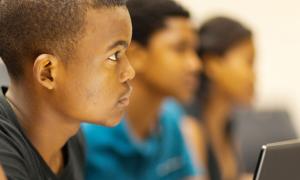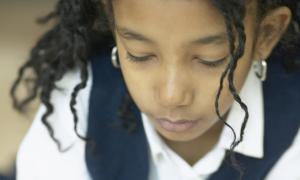article
Why I Will Not Be Teaching About Charlottesville

After Charlottesville, this black teacher of black and brown students knew that her kids would not want another lesson about bigotry and racism. Here’s what she did instead.


“Democracy is not a state. It is not some high plateau that we struggle to reach so we can finally settle down to rest. Democracy is an act. It is an act that requires participation, organization and dedication to the highest principles. It is an act, and a series of actions that require us to continuously verify our commitment to civil rights and social justice at every challenge.”
— Rep. John Lewis
